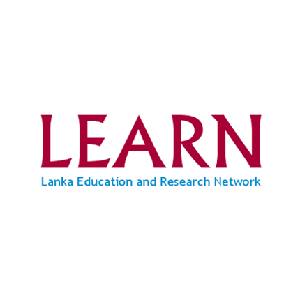
Sri Lanka: digital civil engineering field camp
During any normal year, some 150 future civil engineering undergraduates in Sri Lanka would spend about ten days surveying a real site for a given construction project. The annual field camp is a cornerstone of their education. But what if due to COVID-19, the event cannot take place physically? Correct answer: the field camp is converted to a digital format!
“Firstly, we used a drone to survey the chosen site. Based on these data, we created various tasks. Each task was assigned to a group of students exactly as would be the case during a physical field camp,” explains Dr. S. K. Navaratnarajah, (Nava for short), Senior Lecturer at the Department of Civil Engineering, University of Peradeniya.
Each of the 24 groups would have their own designated Zoom link active from dawn till midnight. All work and all communication with the instructors, evaluators, camp coordinators, and the other groups would run over this link.
Recreating an intense atmosphere
The traditional field camps are very intense. Students get up at 5 o’clock in the morning to get ready for field work, which continues till around 6 o’clock in the evening. Then, after supper, the students will prepare and present reports on the day’s work.
“Typically, the students do not get to bed before midnight – and next morning it is the same story once more. I dare to say, we managed to create the intense atmosphere – and the long workdays – in the digital format!” says Nava.
The 24 Zoom links were provided by the national research and education network (NREN) of Sri Lanka, LEARN (Lanka Education And Research Network).
“Having the links running continuously was absolutely imperative for the whole exercise. We were glad to see that everything worked,” says Nava, adding:
“Of course, we could not simulate the actual field work and hands-on tasks with instruments etc. but still I would say that we were able to provide about 80 per cent of the full field camp experience. The final night of the camp is generally a celebration night after days of hard work. We also held this “campfire” via Zoom where the students and faculty members shared their joy and fun experiences during this exercise.”
Points to future blended education
Not only did the digital field camp save a core element of the students’ education during the pandemic. The successful implementation of digitals tools also points to future innovations.
“Even when COVID-19 is no longer an issue, we will still use Zoom and the other digital tools. I believe we will see blended education with both physical and digital elements,” says Nava, continuing:
“Still, it remains a challenge that many students do not have proper internet connections, and some do not have computers, cameras, microphones etc. of sufficient quality. Zoom type solutions are helpful, but we also need to build a better infrastructure even at the level of the individual student. Fortunately, the solutions found during the pandemic has shown the value in better connections and equipment, and hopefully funding will be found to improve the opportunities for the students.”
For more information please contact our contributor(s):

